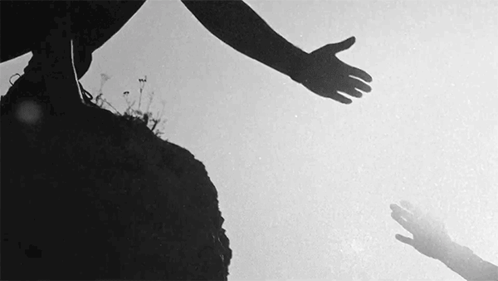The Background
These days, everything is expensive. I can hardly go to the store without pausing in the egg section and shaking my head over just how expensive they have gotten. I do the same thing at the gas station when the prices seemingly jump up $0.50 overnight and my gas tank happens to be on empty. Everything hurts financially because my dollars don't go as far. Due to this, when I do have extra money burning a hole in my pocket, it becomes a hard decision on what to spend it on. Every once and a while, I decide that maybe there is someone out there who needs it more than I do, and I decide to part with my hard earned dollar for "the greater good". But is charitable giving actually the greater good? Is it truly beneficial? Or is it actually contributing to a broken and predatory system that exploits and harms those who the giving is supposed to help? Upon watching the 2014 documentary "Poverty Inc." some of these questions come to light.
Fundamental Issues
Within Poverty Inc, there are actually many issues raised by not only the experts, but also the citizens of some of the countries that were visited during the making of the documentary. Three issues that I would like to focus on are dilution of charitable funds, creating an unfair system, and the inability to create lasting change.
Dilution of Charitable Funds
It is anecdotally quoted in the documentary that Haiti could have as many as 10,000 NGOs, or Non Government Organizations. Each of these organizations are there to provide aid in some form or fashion. However, one of the big issues with this system is that this creates an enormous amount of charitable waste. Each NGO has to have dozens of people working in various jobs such as financial controlling, compliance, management, etc. who all work for this organization in order to allow the organization to do any good. Essentially every time someone donates a dollar, it gets split up into many pieces, many of which will never make it to the intended beneficiary because so much has to go to support the bloated structure of the NGO or charitable organization.
While I understand that not every organization can be run on a strictly volunteer basis, it is extremely frustrating that this bloat exists in an industry meant to help others. We must create ways at a much smaller scale to have a much greater reach than these other organizations are able to.
Creating an Unfair System
It becomes very difficult to have impact at a smaller but further reaching level due to the unfairness that is present in the industry. When governments and large grants get involved, 0's start to get added to the end of checks and people's eyes start to glaze over. Rational or practical solutions get passed over simply because a different worse solution has monetary incentives tied to it. This leads to issues such as that of Haiti, which is shown in the documentary. After the horrific earthquakes happened in 2010, immediate disaster relief was required to help get them back on their feet. The US stepped in and provided rice as a food source to provide nourishment. But years after the earthquake, Haitians were still reliant on US rice. Why? It is fairly simple.
Since the US was offering heavily subsidized rice, any rice farmer already in Haiti went out of business. This extends to other food producers of different goods, because nobody in Haiti could compete on price with the large scale farming of the US. After these other producers went out of business, more and more people became dependent on rice for every meal. US farmers didn't want to give up the guaranteed subsidies they were getting to donate the rice, and the Haitians couldn't afford to eat anything besides rice. Because the US government got involved, a system in which Haitian producers couldn't actually produce anything spiraled out of control and seriously hurt the overall Haitian economy. This finally leads to the last point of concern I gathered from the documentary, which is the inability to create lasting change.
Inability to Create Lasting Change
As local business people are unable to compete with large government subsidized products in any industry, entrepreneurship dies, and so do hopes for societal betterment. Almost every "good" thing we have in the world is due in some way to an entrepreneur. When entrepreneurs are forced out, there is nobody to create change. if there is nobody to create change, things stay stagnant and will never improve. Whether this is in regards to new products, jobs for locals, or economic health and prosperity in general does not matter. Any amount of essentially forced stagnation is a bad thing. If natural forces aren't allowed to take effect and grow and iterate upon themselves, lasting change cannot be made. You need small, medium, and large scale businesses in an economy. Where any one of those sectors lacks, unemployment and other negative consequences are bound to follow.
I truly believe that there is a better system to foreign aid, which lies in entrepreneurship. If every dollar of aid, with the exception to immediate disaster relief, then many small business could be created. With the creation of small businesses, some of those will grow from natural market forces to medium sized businesses, and a few of those will even grow to be large businesses one day. But it is essential that those not be forced. The consumers need to be the ones choosing which businesses have value in their specific areas, not a government or aid group. Only through natural entrepreneurial growth will we create lasting change in countries that deserve better than a broken aid system.
